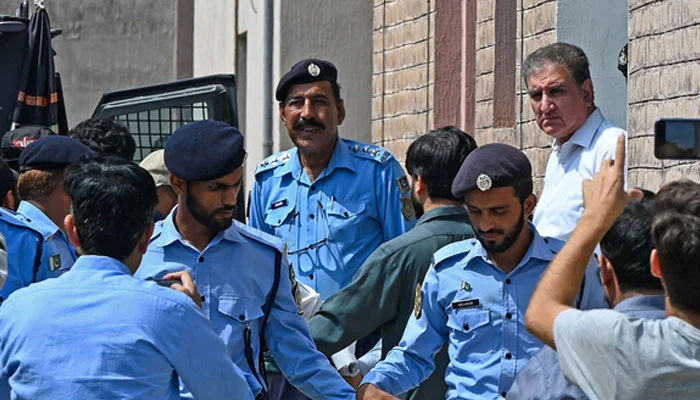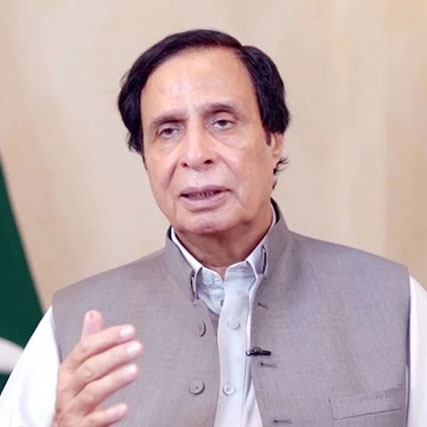1. Shah Mehmood Qureshi
Shah Mehmood Qureshi, the foreign minister, has emphasized how crucial it is to protect private diplomatic correspondence, particularly the cipher that was given to a U.S. official. This warning is issued at a time when national security issues are of utmost importance and diplomatic relations are being thoroughly examined. The minister’s insistence on keeping this cipher safe highlights how sensitive international diplomacy can be, especially during a time when geopolitical tensions are rising.
2. The significance of Security Ciphers
By encapsulating sensitive data and guaranteeing that communications stay private, ciphers are essential tools in diplomacy. The importance of protecting these communications cannot be emphasized in a time when information breaches can have catastrophic repercussions. Unauthorized cipher sharing can result in miscommunications, negative diplomatic effects, and even national security risks.
3. Pakistan and US Relations
Qureshi caution suggests that the government needs to take strict action to guarantee the security of the encryption. When working with foreign officials, who might not be as accountable for sensitive information, this is especially important.
Throughout history, Pakistan and the United States have had a complicated relationship that is marked by both cooperation and hostility. The United States has depended on Pakistan as a vital ally in South Asia since the Cold War. But there are now problems with trust, especially when it comes to Pakistan’s involvement in counterterrorism initiatives and its ties with other regional nations.
These ties have become even more complex as a result of recent events in Afghanistan and changing alliances. It is more important than ever to keep diplomatic channels private and secure under this situation. Minister Qureshi order serves as a reminder of the risks associated with safeguarding private correspondence.
4. Impact of Qureshi’s Order
Several ramifications for Pakistan’s foreign policy are highlighted by Qureshi’s warning to the ministry:
a.Improved Security Procedures:
To safeguard private data, the government needs to improve its security procedures. This entails preventing unauthorized individuals from handling ciphers and restricting access to classified documents.
b.Improved Diplomatic Training:
Regular training on information security and the value of confidentiality in communications should be provided to diplomats. Being aware of such dangers can lessen breaches.
c.Active Communication Monitoring:
To keep an eye out for possible leaks, the ministry should put in place mechanisms to monitor communications. Diplomatic problems avoided by promptly identifying unauthorized access.
5. Technology’s Function in Cipher Protection
In the current digital era, technology is essential for safeguarding private data. Ciphers can be protected from unwanted access with the aid of encryption technology. The ministry can make sure that a cipher is unreadable by unauthorized persons even if it is intercepted by using sophisticated encryption techniques.
Additionally, diplomatic exchanges can be made more safe by utilizing secure communication systems. The ministry might strengthen its defenses against any intrusions by giving priority to technology solutions.
6. Information Breaches’ Problems
There dire repercussions if important ciphers not protected:
a.Diplomatic Fallout:
Information leaks have the potential to cause serious diplomatic conflicts and sour relations with important partners.
b.Compromised National Security:
Pakistan’s security may be at risk if opponents get crucial knowledge about national security plans due to unauthorized access to sensitive data.
c.Loss of Authority:
A country runs the danger of losing its standing in international relations if it is unable to protect its private communications. If other nations believe there is insufficient security, they might be reluctant to interact with Pakistan.
7. Prospective Difficulties in Diplomacy
Qureshi caution is an important reminder of the difficulties in diplomacy as Pakistan continues to manage its complicated relations with other countries, especially the US. The administration needs find a balance between keeping the channels of communication open and safeguarding sensitive information.
Pakistan’s ability to adjust to shifting geopolitical conditions while maintaining national security as a primary concern will determine the direction of its foreign policy going forward. The government can put itself in a better position to have productive discussions and talks with other countries if it prioritizes protecting important ciphers.
یہ بھی پڑھیں: Asad Umar Resigns from PTI: A Setback for Imran Khan




